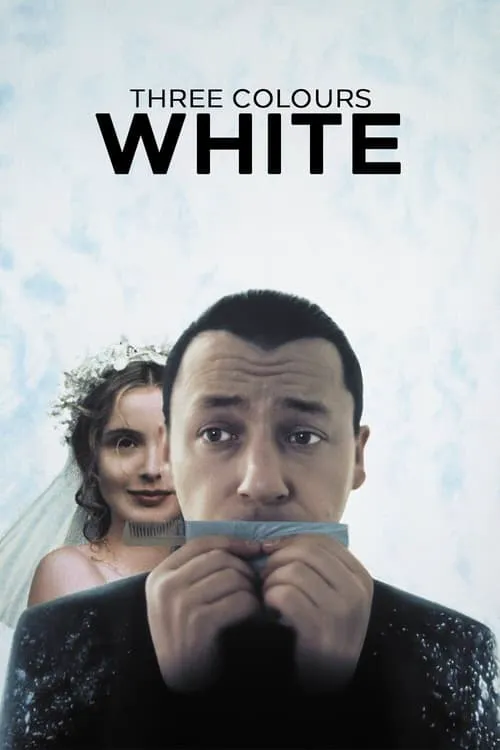Three Colors: White

Plot
Three Colors: White is the third installment in Krzysztof Kieślowski's Three Colors trilogy, a cinematic series of films that explores the themes of freedom, equality, and solidarity in the aftermath of the collapse of communism in Eastern Europe. Set against the backdrop of 1990s Poland and France, the film is a poignant exploration of identity, relationships, and the search for meaning in a world torn apart by the consequences of human action. The film centers around Karol Karol, a Polish immigrant who finds himself adrift in France, having lost everything that once defined him. His marriage has ended in an acrimonious divorce from Dominique, a French woman he met in his homeland. Dominique's decision to leave Karol is sparked by his inability to perform as a husband, a source of great shame and humiliation for the Polish man. Karol's business, which was once a successful venture, has also fallen victim to his failure, leaving him destitute and forced to seek the assistance of fellow Polish expatriate Mikołaj. The unlikely duo forms a strong bond as they embark on a perilous journey back to Poland, navigating the complex web of smugglers and border patrols that stands between them and their desired destination. Along the way, Karol's character undergoes a profound journey of self-discovery, grappling with the existential questions that accompany loss and failure. His relationship with Dominique serves as a catalyst for this introspection, as Karol is forced to confront the fragility of their union and the void that remains in his wake. Mikołaj, on the other hand, serves as a foil to Karol's character, offering a different perspective on the Polish expatriate experience. Through Mikołaj's character, the film explores the tensions between those who leave Poland in search of a better life and those who remain behind, struggling to make ends meet in a country in transition. Their friendship serves as a powerful reminder that, even in the darkest of times, human connection can provide a sense of hope and belonging. The cinematography in Three Colors: White is a visual feast, capturing the stark beauty of the Polish and French landscapes in breathtaking detail. The director's use of long takes and natural lighting adds to the film's sense of realism, drawing the viewer into the world of Karol and Mikołaj. The score, composed by Zbigniew Preisner, is a perfect complement to the film's tone, underscoring the themes of melancholy and longing that permeate the narrative. One of the most striking aspects of Three Colors: White is its nuanced exploration of masculinity. Karol's struggles with impotence serve as a metaphor for the emotional vulnerability that can accompany male failure. Through Karol's experiences, the film encourages the viewer to reexamine traditional notions of masculinity, highlighting the importance of empathy and understanding in our relationships with others. Ultimately, Three Colors: White is a film about second chances and redemption. Karol's journey is a testament to the human capacity for resilience and growth, demonstrating that even in the face of failure and loss, there is always the possibility for transformation and renewal. The film's conclusion, which finds Karol reunited with Dominique in a poignant moment of reconciliation, serves as a powerful reminder that love and connection are always possible, even in the darkest of times.
Reviews
Recommendations




